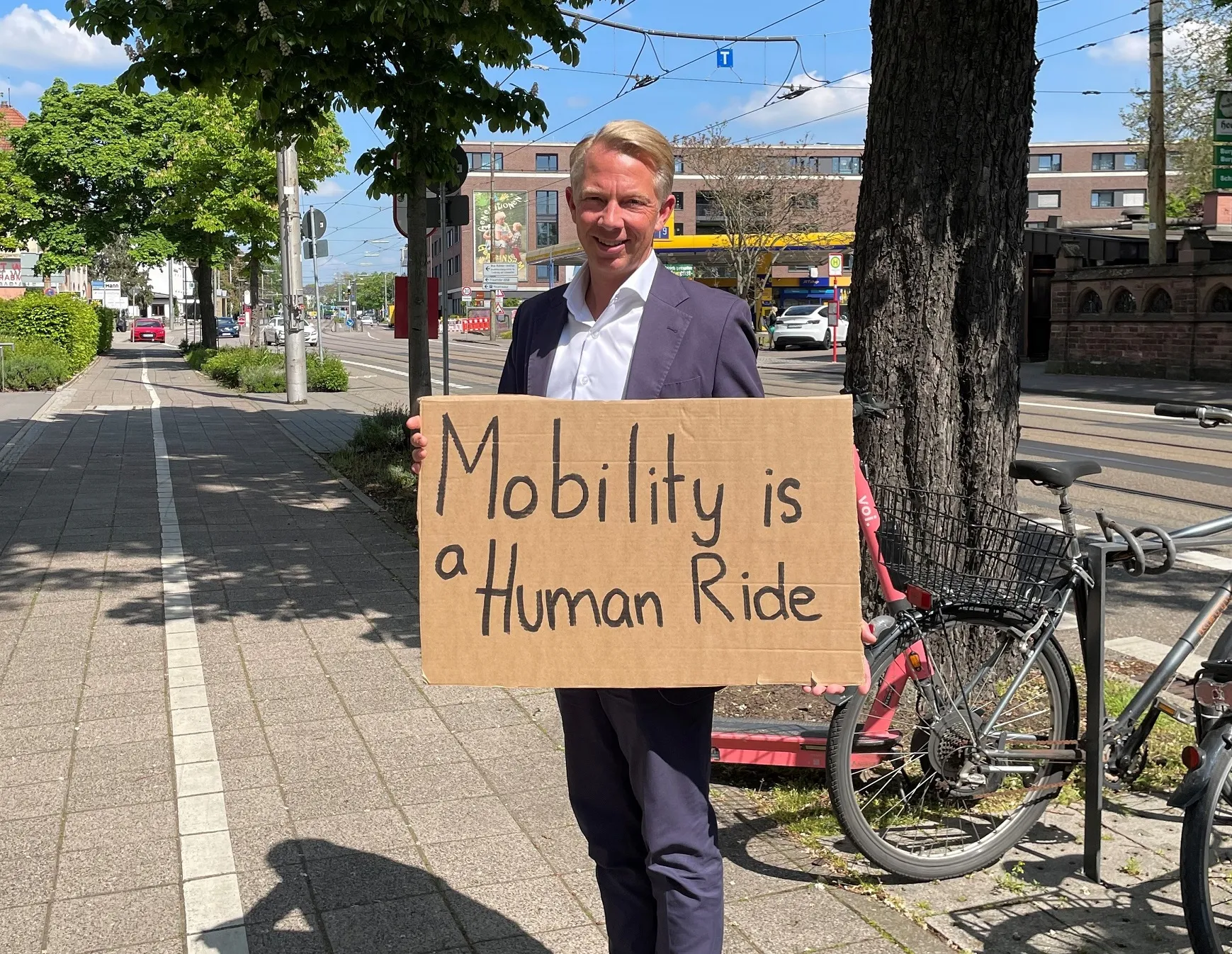
The ability to move around freely is taken as a right by most of us, something we rarely think about.
But for many, transport and travel present problems rather than opportunities - and this is the spirit in which PTV Group launched its #MobilityisaHumanRide campaign for human-centred transportation earlier this year.
“Access to mobility means access to society – to education, to jobs, to leisure," says Christian Haas, CEO of Umovity, the umbrella brand for PTV Group and Econolite.
"With the #MobilityIsAHumanRide campaign, we want to increase the global awareness of this fundamental right and the imperative of sustainable mobility accessible to all."
It has now moved into a new phase, with PTV pledging to donate €1 for every relevant LinkedIn post (including a statement on the personal need for, and importance of, mobility) to the World Resources Institute (WRI), which works on mobility projects in developing countries.
People are invited to post a picture of themselves with the slogan written on a cardboard sign: to ensure the contribution counts, use the hashtag #MobilityisaHumanRide and tag @PTV Group in the post.
PTV invites everyone to participate in spreading the message by sharing a photo of themselves holding a cardboard sign bearing the slogan "Mobility is a Human Ride," along with a statement on the personal need for and importance of mobility.
"Mobility is a prerequisite for social participation," the company says. "Those without access to transportation face exclusion from society, with limited opportunities and possibilities in life."
" With the campaign and theme that claims mobility as a human ride, PTV wants to underline the importance of planning and creating accessible mobility solutions based on the diverse needs of humans. Public transport and sustainable, inclusive modes of transportation play a pivotal role in this aspect."
PTV says the slogan was inspired by Viva con Aqua, an organisation which promotes access to clean drinking water with the slogan: “Water is a Human Right”.
"Like water, mobility is a basic need that should be fulfilled for everyone," PTV concludes.










